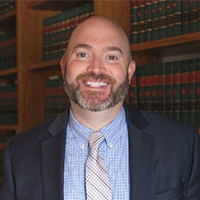Westbrookville Criminal Lawyer, New York
Sponsored Law Firm
-
 x
x

Click For More Info:
-
Cohen & Bernstein, L.L.C.
1360 Clifton Ave #309 Clifton, NJ 07012» view mapCriminal Defense We’re In this Together!
We work hand in hand with our clients to ensure all of your questions are answered and progress through your legal issue is seamless.
800-978-7341
Scott A Russell
✓ VERIFIED *Status is reviewed annually. For latest information visit hereCriminal, Wills & Probate, Employee Rights, Banking & Finance
With experience serving the public as an Assistant District Attorney, prosecuting minor traffic infractions and serious felony offenses, as public def... (more)
Eric Adler
Traffic, Motor Vehicle, Family Law, Criminal
Status: In Good Standing *Status is reviewed annually. For latest information visit here Licensed: 37 Years
Jacqueline Ricciani
Other, Employment, Criminal, Civil Rights, Real Estate
Status: In Good Standing *Status is reviewed annually. For latest information visit here Licensed: 31 Years
 Lindsay Bernstein Clifton, NJ
Lindsay Bernstein Clifton, NJ Practice AreasExpertise
Practice AreasExpertise
